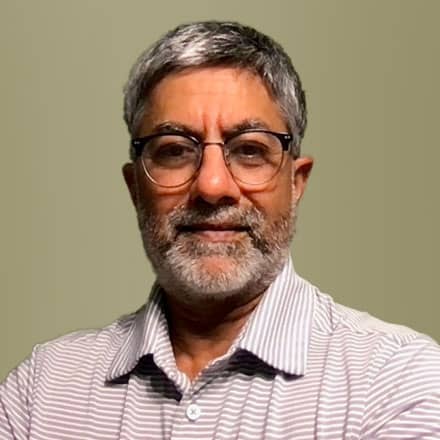Inside Angle
From 3M Health Information Systems
AI Talk: Breakthroughs, burnout and better robots
Inside Angle welcomes V. “Juggy” Jagannathan, PhD, to the blogging team! As Vice President of Research for M*Modal, Juggy builds on four decades of research in artificial intelligence and computer science to explore new technologies that address healthcare market needs. In “AI Talk,” his new Inside Angle blog series, Juggy will discuss the latest research, current news and events, and the human dimension of healthcare technology. (Learn more about 3M’s acquisition of M*Modal’s technology business).
This week’s AI Talk…
10 breakthrough technologies
Every year, MIT Technology Review publishes a list of breakthrough technologies. What’s different this year is that they have asked Bill Gates to curate the list. I am a huge fan of all things Bill Gates—his blog, his reading list, and I guess now this list. It’s a good collection of technologies from the energy sector, including technologies related to combatting climate change, the healthcare sector and general AI assistants. Five out of the ten are in health care and related areas—predicting premature babies, a cancer vaccine, detecting arrhythmias, an energy efficient toilet and probing your gut with a tethered pill! I have seen versions of these topics in Gate’s blogs. Interestingly, there is a reference to the work done by OpenAI and Google with intelligent assistants, covered coincidentally in the next story below. My one quibble with the list is that Bill Gates has invested in a significant number of the technologies listed! But still it is a good list and an interesting one.
Better language models and fake news
OpenAI is a non-profit AI research company that has been working for some time to create what are called Language Models. Language Models, as the name implies, is a model of language—in our case, English. These models are trained in unsupervised fashion to predict the next word given a typically left context. Models so trained are behind the command completion and word prediction that we all see in iPhones and Gmail. It can also be used to generate text. The latest work OpenAI has reported is called GPT-2, the second version of Generative-Pre-Training that uses a model popularized by Google, called Transformer. OpenAI is claiming that their model is so good, they are worried it might generate fake news quite easily! However, instead of releasing their code so others can replicate their findings, they choose to release just snippets of code. They may be protecting IP, but this action is disappointing and belies their name: OpenAI.
Doctors and burnout
Fewer U.S. doctors are facing burnout! That’s the headline, but if one digs underneath the numbers, the picture is not that rosy. The research was done by Mayo Clinic comparing burnout and satisfaction with work-life integration of physicians with the general working population. The study covers the period 2011 to 2017. It’s a pretty extensive study and notes in conclusion that physician burnout rates are better than they were in 2011. However, compared to the rest of the working population, significantly worse!
Are robots competing for your job?
In this thoughtful article in The New Yorker, Jill Lepore explores the impact of AI and automation on jobs. This is a popular topic of late, what with every sphere of human activity facing some form of improvement driven by automation. Robots of the past automated factories and the pain was felt by blue collar workers. Now others are in the firing line: lawyers, doctors, bankers and even actors. Fear of automation, the author opines, is “two sides of a partisan coin.” Those who are afraid of AI may also fear immigration. The common thread? Jobs. Jobs replaced by automation leads to what some are calling a “useless class.” Tech luminaries like Elon Musk and Mark Zuckerberg are proposing programs that beef up the economic safety net, so no one will fall into poverty because of a lack of jobs. Not so fast, says Jill. We have been here before, with every advent of new technology replacing old jobs, but also creating new opportunities. There have always been new jobs for the human race to embrace and I agree with that optimistic viewpoint! We are always trying to augment with technology—not necessarily replace workers.
I am always looking for feedback and if you would like me to cover a story, please let me know. “See something, say something”! Leave me a comment below or ask a question on my blogger profile page.
V. “Juggy” Jagannathan, PhD, is Vice President of Research for M*Modal, with four decades of experience in AI and Computer Science research.




